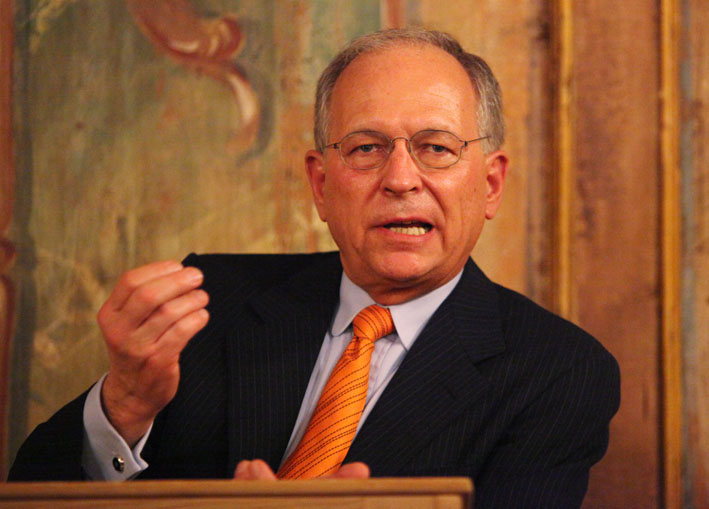
From Wolfgang Ischinger, Spiegel: China is booming, the Arab world is in tumult and the Internet is fundamentally changing the way we live — and what is Germany doing? Instead of taking an active role in shaping the future, politicians are in standby mode. Worse yet, the German people have developed a preference for the status quo. . . .
What is wrong with us?
Are we suffering from some new type of political paralysis? Why is it nearly impossible for our citizens to tell anymore what is at stake — or if there is anything at all at stake beyond winning the next election? Does Germany — does Europe — have any goals its citizens might be able to identify, beyond reviewing write-offs for commuters or debating whether to eventually cut taxes after all? . . .
Doing Nothing Is Not an Option
It’s strange, really. The world around us is changing with increasing speed, with new centers of political power and economic growth forming in Asia, while Germany argues in and about Europe, seemingly running in place. Yet Germany — a major exporter of goods and thus more dependent on global trends in development and growth than almost any other country in the world — ought to have an interest in spearheading this movement and helping to shape these global changes.
Doing nothing is not an option. We here in Europe kept clinging to the G-7/G-8 model, while years ago the United States and Canada took the initiative to herald the transition into the G-20, affording the organization an overdue measure of global legitimacy. Europe went along, but was never in the driver’s seat. And how did the climate summit in Copenhagen go, again? Weren’t the key decisions made without European participation there too? . . .
Outside the political arena, Germany actually displays an enormous degree of innovation, as the global success of our mid-sized businesses clearly shows. In other words, it’s not as if we couldn’t do it if we wanted to. But German society has privatized such things as objectives, risk-taking and innovation to the greatest extent possible. Our economy is easily able to keep up with global competition and we’re champions at production, but it seems this private sector strength doesn’t carry over into our politics, which are hardly even visible in their current unenthusiastic standby mode. . . .
Politics has to want something! It has to want to overcome the status quo, has to define goals that are worth making an effort for, has to explain why Germany’s fear of change is shortsighted and owes something important to coming generations: perspectives for tomorrow and beyond.
Wolfgang Ischinger served as Germany’s ambassador to the US until 2006 before taking over the German Embassy in London until 2008. Today, he is the chairman of the Munich Security Conference and a member of the Board of Directors of the Atlantic Council. Translated from the German by Ella Ornstein. (photo: Körber Stiftung)
Image: koerber%20stiftung%207%207%2011%20Wolfgang%20Ischinger.jpg
